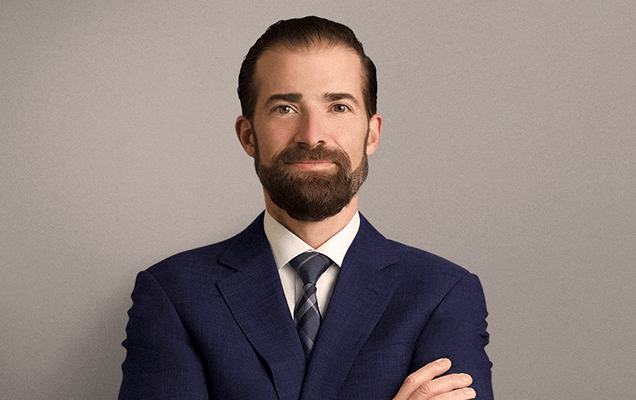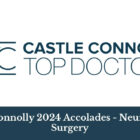Self-education is a powerful way to reduce the stress of any upcoming medical treatment. Taking the time to learn more about your colloid cyst and surgery can help you feel more at ease as you move through the process. Being informed can help you in your conversations with your doctor and will give you an idea of what to expect before, during and after your treatment.
The following information will help you better understand the nature of colloid cysts and surgery as a treatment option, as well as colloid surgery risks and benefits. While your personal doctor will be the best person to discuss your individual case, having a general understanding of the risks and benefits of colloid cyst surgery can help you in your conversations moving forward.
Overview of Colloid Cysts
A colloid cyst is a benign growth that develops within the third ventricle of the brain. Ventricles are spaces filled with cerebrospinal fluid (CSF), and the third ventricle is deep within the central area of the brain. A colloid cyst is essentially a smooth sac filled with a material called colloid, which can range from fluid to solid in nature. Colloid cysts develop before birth and grow slowly over time, typically manifesting in symptoms in adulthood.
Though a colloid cyst is a benign growth, it can still grow large enough to block the flow of CSF, leading to a condition called hydrocephalus. If the blockage becomes severe enough, it can lead to coma and even death. Because colloid cysts are relatively rare, it is important you work with an expert in the NJ area who can help diagnose and manage your condition.
Colloid Cyst Surgery
The traditional approach for treating a colloid cyst involves accessing the site via a craniotomy, then removing the cyst. Because the third ventricle is located deep within the brain, traditional surgical resection is a relatively invasive and lengthy procedure. Some patients will require a traditional surgical approach because of the size or location of their colloid cyst. However, thanks to advances in research and instruments, there is a less invasive option that uses an endoscopic approach.
Rather than performing a craniotomy, a neurosurgeon can create a small incision just behind the hairline to provide endoscopic access. Using microscopic visualization and specialized instrumentation, the neurosurgeon can navigate to the colloid cyst and resect it. The incision site is closed and most patients are able to return home within a day or two.
Some patients may also require a ventricular shunt to resolve any CSF buildup, even after colloid cyst resection. This shunt helps divert the fluid to another area of the body, where it can be resorbed, alleviating the hydrocephalus.
We are more than surgeons, we are your support system.
Colloid Cyst Surgery Risks
Your personal doctor will take all the colloid cyst surgery risks and benefits into consideration when developing your treatment plan. If he or she has recommended surgery, it is because the benefits outweigh the risks and your doctor believes that surgical resection is the most effective treatment for your individual condition. While he or she will be able to review your specific risks and benefits as they relate to your specific situation, both are outlined here for your information.
There are some risks related to surgery in general. These include:
- Infection
- Bleeding at the incision site
- Pain
- Reactions to general anesthesia
Risks more particular to brain surgery include:
- Blood clots
- Hemorrhage
- Seizures
- Memory deficits
- Nerve damage affecting movement or speech
- Hydrocephalus following surgery
These risks are reduced by using an endoscopic approach and, again, are considered to be outweighed by the benefit of surgery if your doctor has made that treatment recommendation.
Colloid Cyst Surgery Benefits
Any colloid cyst has the potential to grow, even if it is not causing any symptoms. This can create a dangerous CSF blockage that can rarely lead to coma and even death. Surgical removal of your colloid cyst can ease symptoms, keep them from worsening and prevent even greater complications in the future. If your doctor has recommended surgery, it is because he or she feels it is in your best interest given your individual circumstances.
Find a Colloid Cyst Expert in Northern NJ
Not everyone with a colloid cyst will require treatment. However, because they have the potential to grow dangerously large, it is important to find someone experienced in diagnosing and managing colloid cysts in the tri-state area. Colloid cysts only occur in three per 1 million people so not every neurosurgeon will have expertise in treating your condition. Taking the extra time to find a doctor who does can help you rest easy as you move forward in the process.
As you progress along your treatment path, continue to educate yourself about your condition and upcoming surgery. Having a solid understanding of what to expect along the way will help you prepare your mind and body. If you find you still have questions about specific colloid cyst surgery risks and benefits, be sure bring them up with your personal doctor at your next appointment. He or she will be able to relate the information you have learned here to your individual case and health factor, helping set your mind at ease.

About Dr. Anthony D'Ambrosio
Dr. Anthony D'Ambrosio is an accomplished neurosurgeon in North Jersey and a proud member of Neurosurgeons of New Jersey practicing primarily out of their Ridgewood office conveniently located on East Ridgewood Avenue. Dr. D’Ambrosio focuses his clinical practice on brain tumors, nervous system disorders, and facial pain disorders. He has expertise in a variety of complex surgical and radiosurgical techniques as well as minimally invasive procedures intended to successfully treat complex diseases of the brain. These techniques include micro-neurosurgery, microvascular decompression surgery and Gamma Knife radiosurgery. He's authored over 25 peer-reviewed journals and is the recipient of many awards.






